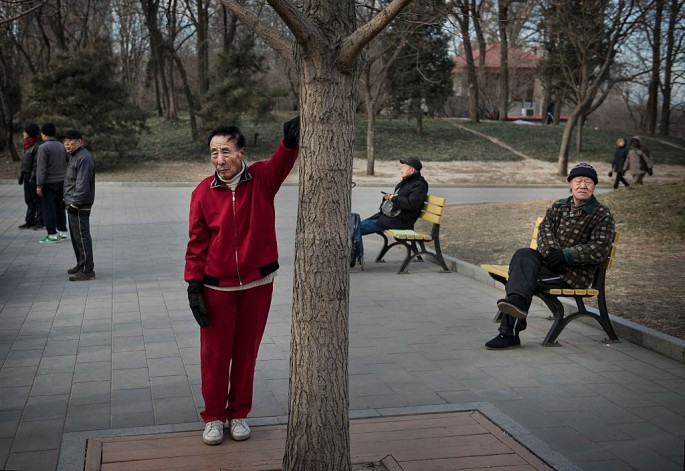China's aging population may pose serious threats in different areas of Chinese life, particularly health care, the China Longitudinal Aging Social Survey indicated, according to an article by China Daily. The survey, which was released over the weekend, was conducted by the National Survey Research Center at Renmin University.
The survey gathered responses from around 11,000 Chinese seniors from 134 counties and districts.
According to the survey, chronic diseases such as diabetes, hypertension, heart disease and arthritis are the main causes of suffering for over 75 percent of the respondents. Another major concern for these senior citizens is deteriorating mental health, with 25 percent of the respondents expressing concern over their current lifestyle.
China's population is expected to get older between 2022 and 2040, the time period when China's baby-boom generation will become senior citizens. By the end of 2015, the country already has 222 million seniors, with over 4.4 million suffering from disabilities.
Although the lifespan for seniors is commendable, serious disabilities have led to citizens being treated or regarded as heavy burdens for their families and the general society.
The rapidly aging population, when mixed with labor shortage in the country, results in a serious demographic hurdle, said Zhai Zhenwu, a professor of sociology and population studies at Renmin University.
"The universal second-child policy introduced late last year will delay this trend but cannot reverse it," said Zhai in an interview with China Daily.
Still, the fact remains that although China's population is aging, it's not very old, according to Du Peng, lead researcher and professor of gerontology.
China can still manage the situation at present, but the country needs to prepare for when baby boomers will outnumber the young population, said Du. These members of society were born in the early 1960s, with the numbers peaking in 1963, the year when 29 million children were born.
"Long-term care insurance could be a major tool," said Du, when talking about policies and measures that can help the government deal with the aging population.
To stop the baby boom, the one-child policy was implemented by the government.



























